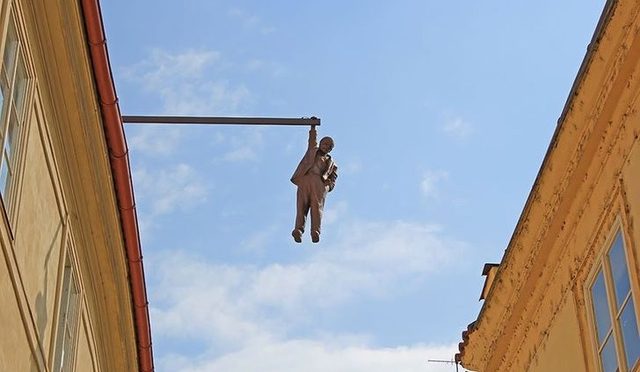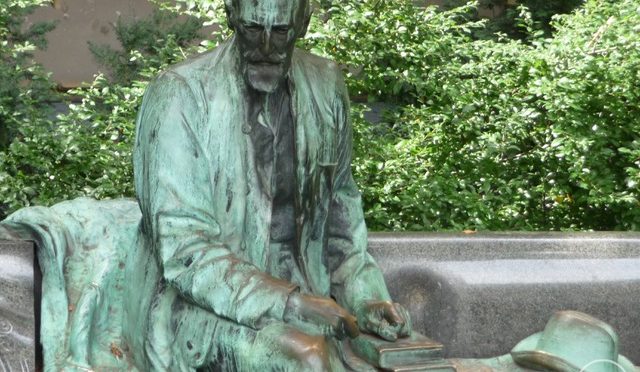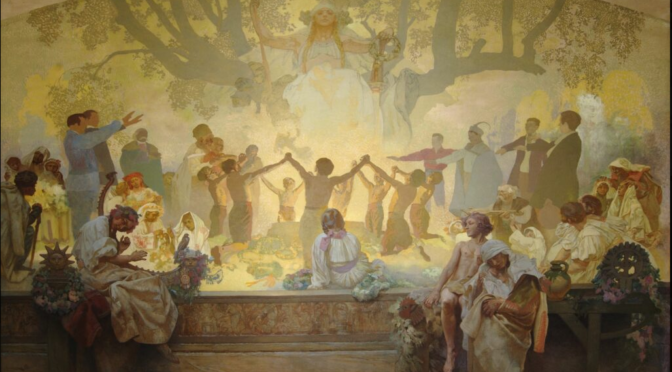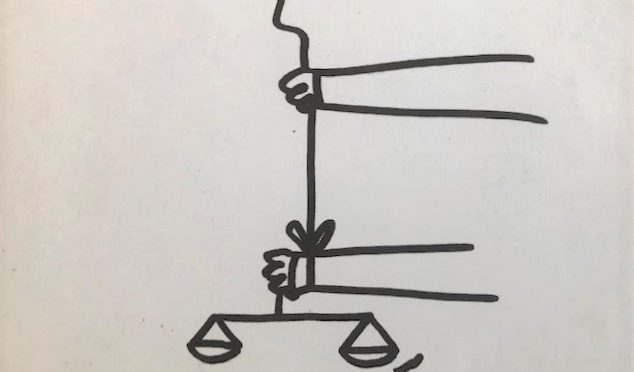
Psychoanalysis in Czechoslovakia (1918-1939):
Freud’s Theories Between Czech and Slovak Art, Literature, Philosophy, and Politics
1st session of the Seminar “Rethinking Psychoanalysis in Central Europe: Interdisciplinary and transnational perspectives“
When: Tuesday, April 19, 2022, 4:00–6:00 pm
Where: At CEFRES and online (to register, please contact claire(@)cefres.cz)
Language: English
Coordinator: Agnieszka Sobolewska (University of Warsaw/Sorbonne University/CEFRES)
Guest-speaker : Adam Bzoch (Slovak Academy of Sciences)
Discussants:
- Paweł Rodak (University of Warsaw)
- Jean-François Laplénie (Sorbonne University)

Reading Sándor Ferenczi: Mutual Analysis and the Hungarian Origins of Trauma Theory
3rd session of the Seminar “Rethinking Psychoanalysis in Central Europe. Interdisciplinary and Transnational Perspectives”
When: Tuesday, May 24, 2022, 4:00-5:30 pm
Where: At CEFRES and online (to register please contact claire(@)cefres.cz)
Language: English
Coordinator and discussant : Agnieszka Sobolewska (University of Warsaw/Sorbonne University/CEFRES)
Guest speaker : Peter L. Rudnytsky (University of Florida/American Psychoanalytic Association)

Affects, Everyday Writing Practices, and the Origins of Self-Analysis. The Case of Julian Ochorowicz and Sigmund Freud.
4th 2022 Session of CEFRES Seminar
When: Wednesday 30 March 2022, 4:30 pm
Where: At CEFRES and online (to register please contact claire(@)cefres.cz)
Language: English
Host: Agnieszka Sobolewska (Warsaw University/Sorbonne University/CEFRES)
Abstract:
In what ways everyday writing practices (such as keeping a journal or writing letters) are related to science in the second half of the nineteenth century? How the differences between self-reflective techniques (such as introspection and self-analysis) are reflected in the generic divergencies between journal and epistolary practices? During this presentation, I will take a closer look at the important shift in the nineteenth century psycho-medical literature which was closely related to the question of psychological introspection and the emergence of psychoanalytic self-analysis in the late 1890s. This shift can be closely observed in life writing of the nineteenth-century psychologists, physicians, and future psychoanalysts, and was crucial for future understanding of the self in the twentieth century.
Continue reading Affects, Everyday Writing Practices, and the Origins of Self-Analysis →

Pan-Slavism or Romantic Nationalism? The case of the Pest-Buda Serbs in the first half of the nineteenth century
2nd 2022 Session of CEFRES Seminar
When: Wednesday 2 March 2022, 4:30 pm
Where: At CEFRES and online (to register please contact claire(@)cefres.cz)
Language: English
Host: Dušan Ljuboja (ELTE University, Budapest, associated at CEFRES)
Abstract:
The nationalism studies are a broad field, with several different schools of thought, usually divided between the modernists and primordialists. The phenomenon of nation building is generally viewed as a modern concept, characterized by the age of changing social orders, rise of industrial capitalism, new technologies, and information age. Whether the emerging nations had a right to claim that their existence reached far beyond this modern era, does not truly matter. The nationalist movements abide by a certain set of rules. Researchers devised methodological tools which would act as a lens through which we could determine the stage of development of a certain national movement. One of these tools is the framework by Joep Leerssen, a Dutch historian, who proposed the idea of “cultural nationalism.” This theory, among others, would be the basis of my attempt to determine whether a certain movement, regardless of its developmental stage, would qualify as a national one, and if not, what were the reasons for it? Continue reading Pan-Slavism or Romantic Nationalism? →

Justice and Memory after Dictatorship: How Eastern Europe and Latin America Transformed International Law
3rd 2022 Session of CEFRES Seminar
When: Wednesday 16th March 2022, 4:30 pm
Where: At CEFRES and online (to register please contact claire(@)cefres.cz)
Language: English
Discussants: Raluca Grosescu (SNSPA, Bucarest), Eva-Clarita Pettai (Imre-Kertész Kolleg)
Moderation: Anemona Constantin (CEFRES)
Abstract:
This research investigates how national courts from Latin America and Central Eastern Europe (CEE) have challenged and transformed international criminal law (ICL) in trials held against former authoritarian officials after the “third wave” of democratization. In contrast to the UN-centric approaches that have dominated the scholarship on ICL, I explore the role of two so-called “semi-peripheries” of the international system in shaping global norms. I show how legal actors from the two regions created novel readings of ICL and contested an existing international law order which they considered unable to address their violent pasts. Continue reading Justice and Memory after Dictatorship →

The Galactic Plane of Human History or the Hold of the Infinitely Large Scale in Our Lives
1st 2022 Session of CEFRES Seminar
When: Wednesday 16th February 2022, 4:30 pm
Where: At CEFRES and online (to register please contact claire(@)cefres.cz)
Language: English
Hosts:
Julien Wacquez, Post-doctoral researcher in the Labex « Les passés dans le présent », associate researcher at CEFRES
The field of environmental humanities, which has been developing rapidly over the last few decades, is led, by its very objects of investigations and research questions, to work with a wide range of spatial and temporal scales. But historians, sociologists, anthropologists, and literary scholars are not used to considering the coexistence of phenomena on such scales. The case of SARS-CoV-2 is a flagrant example: to understand the consequences of the emergence of such a virus, it is necessary to go from the scale of the genome, then of the molecule (for example, the SPIKE protein with which the virus can get into our bodies), to that of ecosystems, and even of the entire planet, while passing by that of the individual and that of populations. How can such varied scales meet? Such work requires the use of different disciplines and many types of knowledges. How can these disciplines interact? Continue reading The Galactic Plane of Human History or the Hold of the Infinitely Large Scale in Our Lives →






